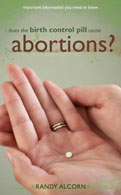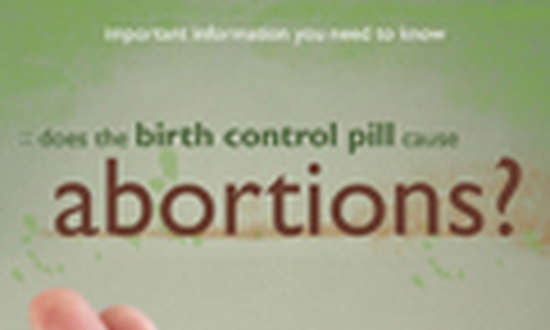 Randy Alcorn is a well-known author and former pastor of 14 years. He has millions of devoted fans of both his theological books and Christian novels. He wins over readers with his candor (he freely shares personal experiences, including his failures) and down-to-earth style that helps people comprehend difficult topics.
Randy Alcorn is a well-known author and former pastor of 14 years. He has millions of devoted fans of both his theological books and Christian novels. He wins over readers with his candor (he freely shares personal experiences, including his failures) and down-to-earth style that helps people comprehend difficult topics.
Many people are familiar with Alcorn’s books on financial stewardship, and his amazing personal testimony of giving. He was arrested for peacefully demonstrating at an abortion clinic, and a radical court awarded an outrageous $8.2 million judgment against a group of peaceful protestors. To prevent his church from having to deal with a writ of garnishment, Randy resigned and began Eternal Perspective Ministries. His wife alone owned their assets and he began receiving minimum wage along with his wife’s part-time secretary’s salary.
Alcorn’s passion is missions, and he still diligently pursues his writing ministry. One hundred percent of his royalties are donated to ministries and missions—over $4 million to date. His family continues to live a modest lifestyle. He encourages people who are financially blessed to consider that God wants them to increase their standard of giving, not their standard of living.
In spite of Alcorn’s large and devoted following, there is one book he has written that is not as well known—Does the Birth Control Pill Cause Abortions? This is not a book that he set out to write. The Lord led him into it. At one time, he and his wife did use oral contraceptives, but he was troubled some of the things he heard and read about their effects. Frustrated by lack of information, misinformation, clever deception, and outright lies, Alcorn decided he needed to spend the time to thoroughly research the truth about the issue for himself. He was appalled by what he discovered. Perhaps the thing that disturbed him the most was the realization that most Christians are either ignorant of the facts or willing to compromise Scripture on this issue.
Many Christians say that or contraceptives prevent ovulation and therefore there is no ethical problem. No one disputes that’s how they were originally intended to work. However, Alcorn explains that because of adverse effects of the pill (ranging from blurry vision to cancer) the FDA has been reducing the allowed potency for the past 50 years.
Since 1988 only low dosage pills are allowed in the U.S., and the majority of doctors and researchers agree that there are breakthrough ovulations at these dosages. This sometimes results in a fertilized egg—an embryo, a human being created in the image of God (Jeremiah 1:5, Psalm 139:13)—that then dies because the pill causes the lining of the uterus to be unreceptive to its implantation. In short, it is a chemical abortion.
Alcorn points out that this doesn’t really bother many non-Christian doctors. They freely admit the pill can prevent implantation in the uterus. They just say that an embryo is not a human being, so they have no ethical qualms. Christians and Christian doctors on the other hand will sometimes deny that the pill works in this way, because they may not want to admit that it can act as an abortifacient. Is this a denial of reality?
The evidence Alcorn cites is very convincing. He shows that millions of chemical abortions occur each year because of the pill. Although it is difficult to prove the exact frequency, it is likely that the average woman using the pill has a chemical abortion about once every two years.
Summary of Key Points
Even something as ubiquitous as the Physician’s Desk Reference makes this admission: “Oral contraceptives act by suppression of gonadotropins [read: hormones]. Although the primary mechanism of this action is inhibition of ovulation, other alterations include changes in the cervical mucus, which increase the difficulty of sperm entry into the uterus, and changes in the endometrium, which reduce the likelihood of implantation.”
Alcorn cites many peer-reviewed medical journal articles that make this same point that implantation is hindered and the embryo dies. It is often in very dense technical language that even doctors have difficulty deciphering. Also the disclaimer language on oral contraceptive packages states as much.
The research has been established since the early 1970s. There are new journal articles published and slightly tweaked formulations of contraceptives introduced every so often, but they all essentially work the same way: They inhibit the production of hormones, which in turn suppresses ovulation (but doesn’t always work), and they make the womb an inhospitable environment so the embryo may not be able to implant and may die.
There are actually several elements of risk:
- The pill speeds up the travel of the embryo, so it may reach the uterus before it is mature enough to implant.
- The pill causes irregular fallopian tube contractions hindering the release of the egg (increasing risk of ectopic pregnancy in which the embryo dies).
- The pill reduces the thickness of the uterine lining, so that an embryo may not survive when it tries to implant.
- The pill may have prolonged effects on the uterus and cervix for months. The manufacturers warn that pregnancy should be avoided for at least three months after coming off the pill. One journal article says, “There may well be greater likelihood of miscarriage during that period.”
- The same effects also increase the risk of chromosomal abnormalities. These can lead to complications and to birth defects if the baby survives.
It is difficult to measure exactly when breakthrough ovulations occur. However, studies using ultrasounds and hormonal indicators show that it does happen. Furthermore, there is incontrovertible proof that it does happen; sometimes women using the pill get pregnant. Some research shows this “failure” rate of oral contraceptives is as high as 3 percent. Also, research shows that women using the pill have higher ectopic pregnancy rates. (An ectopic pregnancy is when the embryo implants in the fallopian tube. Not only does the embryo die, but it can leave scar tissue or even rupture the fallopian tube, causing permanent damage that may prevent future pregnancies.)
Estimates of how often breakthrough ovulations occur vary. Estimates are as high as 20 percent of total cycles in some sources. However, even using the most conservative estimates of half a percent, it results in hundreds of thousands of chemical abortions each year. As stated above, Alcorn cites doctors who believe that the average woman using the pill has a chemical abortion about once every two years, or every 24 cycles, which makes the total number per year in the millions.
There is much more in the book. Page after page of quotes from prochoice and prolife doctors confirming it. All sorts of documentation from the manufacturers themselves. And at the end, a Frequently Asked Questions section to answer couples’ most common and pressing concerns, including practical suggestions for how to be responsible and faithful stewards of the bodies and resources God has designed and given.
The unmistakable conclusion is that all oral contraceptives are unsafe for mother and baby and unethical because they cause chemical abortions.
Far Reaching Implications?
Christians who read this book will certainly want to rethink their use of oral contraceptives, but there are other, far-reaching implications. More prolife doctors will refuse to prescribe oral contraceptives. The prolife movement has already begun to catch on to the ethical dimensions of investing, and consumers will want to weigh the ethical concerns of supporting companies that profit from contraceptives. Some are objecting to health insurance plans that subsidize abortions and abortifacient contraceptives. Most people still do not realize that perhaps the worst ethical problem is that some governments require insurance companies to cover unethical treatments, and they disguise it with subtle language such as “women’s services,” “reproductive treatments,” or “birth control.”
An even farther-reaching implication is that birth control has contributed to the “demographic crisis” that the media has been reporting for the past year. Researchers have shown that the world population is about to peak and go into a decline that will have drastic and far-reaching political and economic consequences. Government leaders are scrambling to figure out what to do about social programs that are economically unsustainable. There are many questions to be answered.
Alcorn titled his book with a question and summed it up with questions: “Is it time to search our hearts and ways? Christian couples using the Pill, isn’t it time to have a heart-to-heart talk? As a matter of conscience and conviction, do you believe you can or should continue with the Pill? Is it time to consider other alternatives? Time to search the Scriptures together, pray together, look at facts presented and ask God’s guidance for your family? The choice is yours to make—make it prayerfully, with a Christ-centered commitment to putting principle above convenience.”
Originally published in the April, 2009, Samaritan Ministries Newsletter, www.samaritanministries.org



